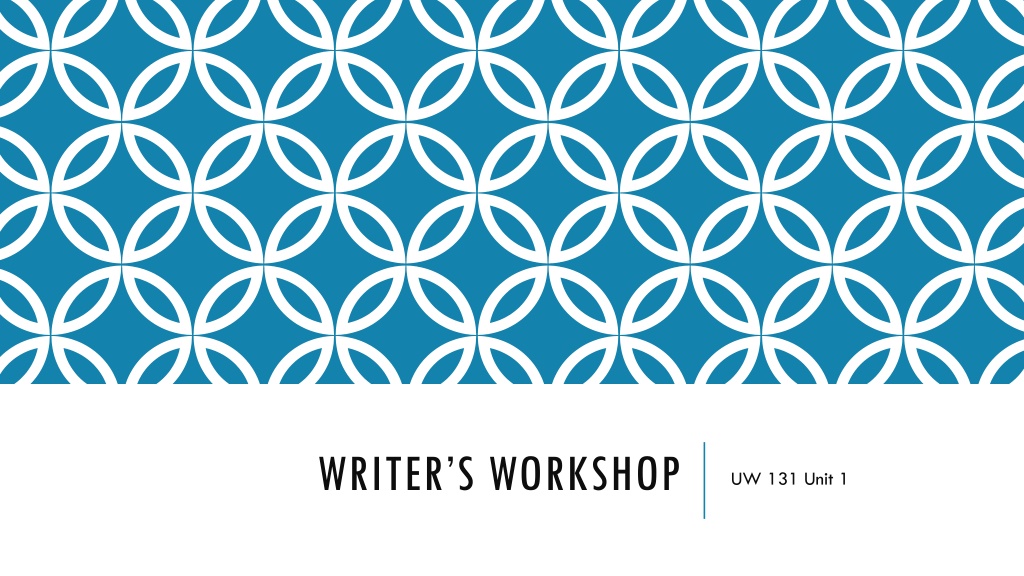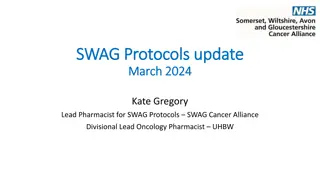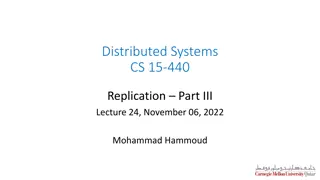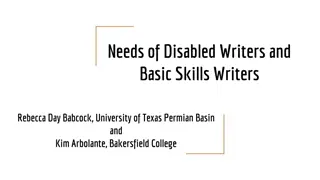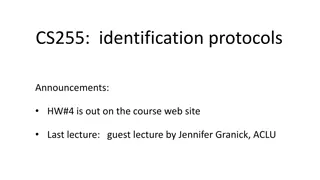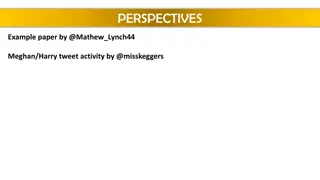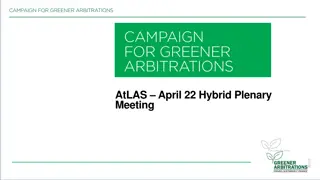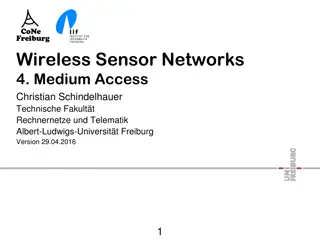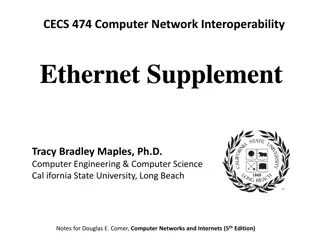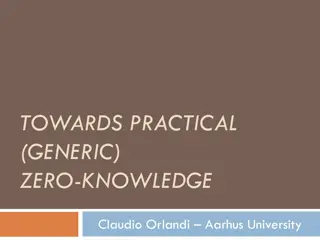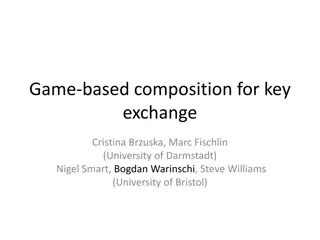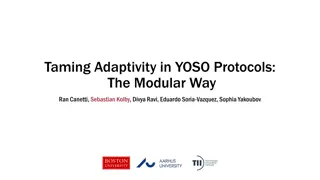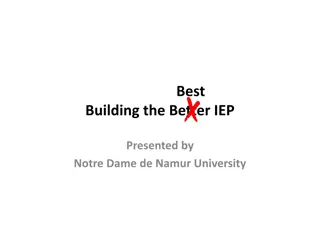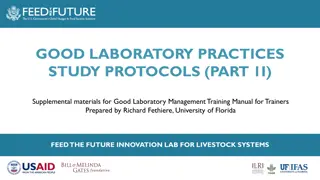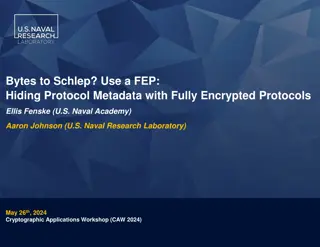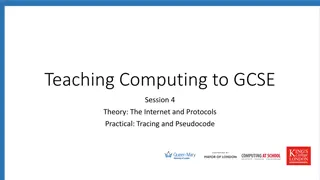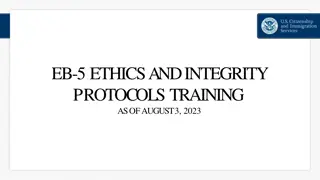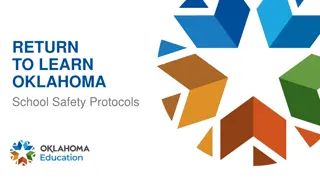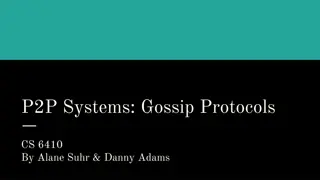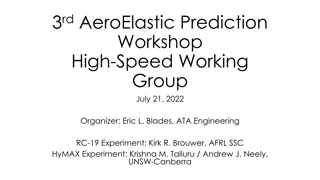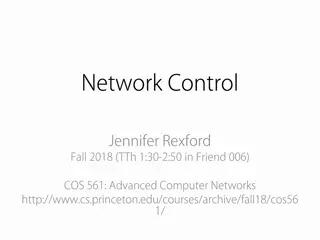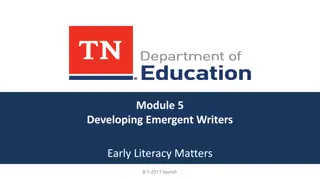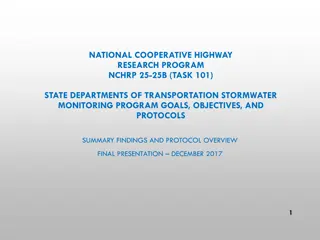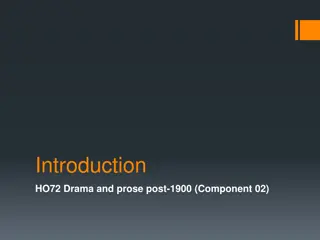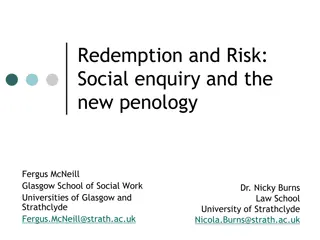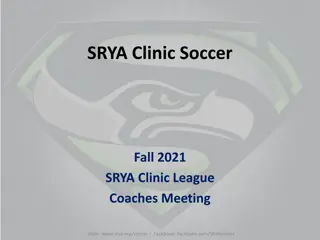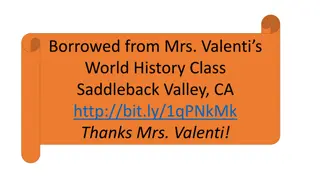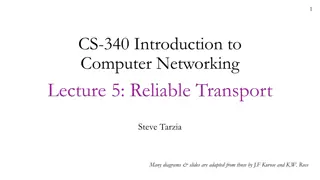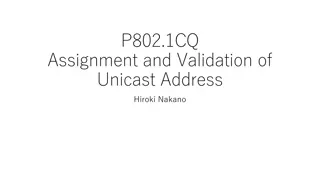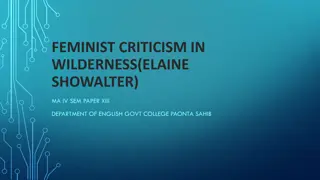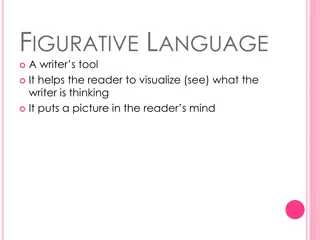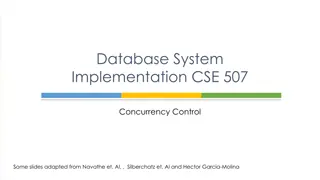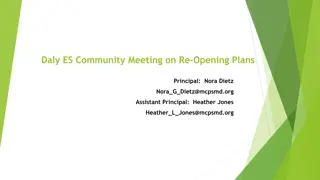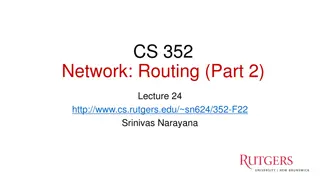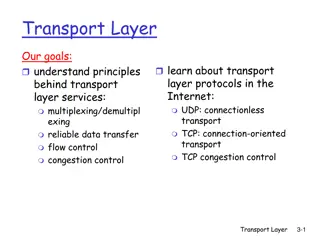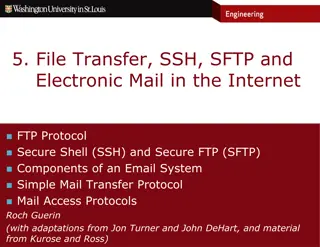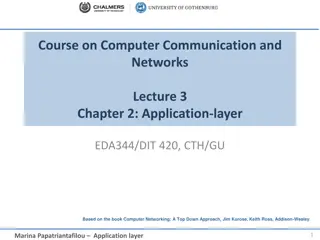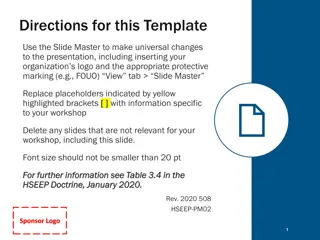Comprehensive Overview of Writers Workshop Practices and Protocols
Explore the essential elements of Writers Workshop in educational settings, including course introductions, collaborative revision approaches, tuning protocols, and student feedback mechanisms. Learn about effective strategies, outcomes, and lessons learned to enhance the workshop experience for writers. Discover the importance of structured feedback sessions, clarifying questions, and reflective practices to improve writing skills and optimize peer collaboration in writing workshops.
Download Presentation

Please find below an Image/Link to download the presentation.
The content on the website is provided AS IS for your information and personal use only. It may not be sold, licensed, or shared on other websites without obtaining consent from the author. Download presentation by click this link. If you encounter any issues during the download, it is possible that the publisher has removed the file from their server.
E N D
Presentation Transcript
WRITERS WORKSHOP UW 131 Unit 1
Course Intro beginning of the year SETTING IT UP College entrance essay assignment Composition course description outcomes assignment
WRITERS WORKSHOP Dartmouth College Ways of Reading approaches to collaborative revision https://writing-speech.dartmouth.edu/teaching/first-year- writing-pedagogies-methods-design/diagnosing-and- responding-student-writing
Sample written piece someone in class or your own! MODEL Share steps of Workshop
WRITERS WORKSHOP Tuning Protocol: 1. Presentation (3 minutes) Writer shares their work and supporting materials; participants are silent 2. Clarifying Questions (3 minutes) Participants preview the work and ask clarifying questions in order to get information that may have been missed/omitted to better understand the work 3. Examining the Work (10 minutes) Participants look closely at the work, making notes on where it seems to be in tune with the goals and where there might be disconnect; presenter is REMOVED and silent 4. Pause to Reflect (2 minutes) Participants individually review their notes silently 5. Feedback (10 minutes) Participants share feedback with each other, while the presenter is silent and takes notes 6. Reflection (2 minutes) Presenter rejoins the group and shares their thinking not defending
THINGS WEVE LEARNED Students become faster reviewers Students become more familiar with the language of the outcomes Groups need to change each time Students require reminders of the protocol Ill-prepared students do not earn Workshop feedback
